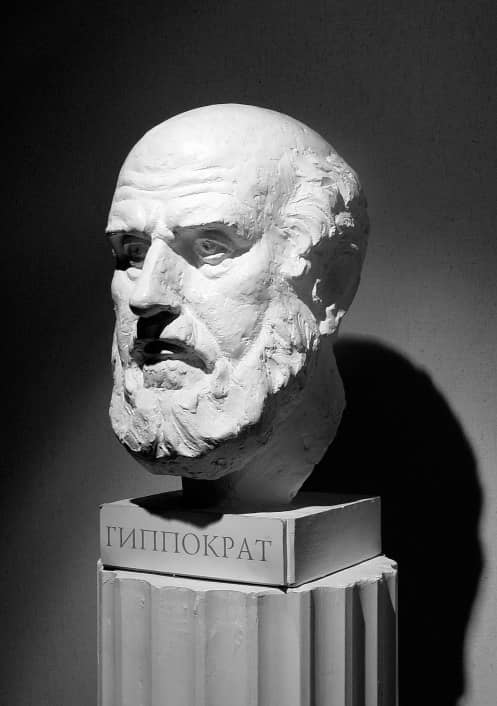 Medicine didn’t become a major discipline for Greeks until around 300 BC when Hippocrates, often called the Father of Modern Medicine, applied logic to help understand various diseases and how to cure them. In some ways, however, he simply built on the theories created by the people who came before him, such as Pythagoras. Even before that, however, the subjects of medicine and healing made their way into Greek mythology. Here’s an overview of how the Ancient Greeks approached this topic.
Medicine didn’t become a major discipline for Greeks until around 300 BC when Hippocrates, often called the Father of Modern Medicine, applied logic to help understand various diseases and how to cure them. In some ways, however, he simply built on the theories created by the people who came before him, such as Pythagoras. Even before that, however, the subjects of medicine and healing made their way into Greek mythology. Here’s an overview of how the Ancient Greeks approached this topic.
Medicine in Greek Mythology
The very fact that the subject of medicine made its way into Greek mythology shows that the people were concerned about their bodies. In general, they believed that the discipline was a Divine Art and one that was gifted to them by the gods. For example, Gaia, the goddess who birthed the earth, represents healing. The Ancient Greeks believed that by living in synergy with the earth, it would keep them healthy. Other gods and goddesses associated with healing include Apollo, Hygeia, and Hermes.
Drawing From Ancient Knowledge
By the time the Ancient Greeks became interested in medicine, the Ancient Egyptians already had a large well of knowledge to draw on. Most scholars now agree that the Ancient Greeks used what the Egyptians already knew and improved upon it. Many of their physicians wrote their findings and recipes on papyri and somehow, the Greeks managed to learn from them. How they came by these writings, however, is unknown.
Early Physicians
There were several early physicians who had an impact in ancient medicine in Greece. Here’s an overview:
- Pythagorus. Aside from being an important mathematician, he was also a physician and would travel throughout Greece in an effort to heal those who were sick.
- Empedocles. Came up with the Theory of the Four Elements, which states that everything in the universe is comprised of fire, air, earth, and water.
- Thales. He theorized that all life originated from water. His theory was referred to as “biogenesis”.
- Alcmaeon. In many ways, he was the founder of modern metabolic theory. He believed that when the systems of the body are out of synch, diseases might develop.
Rational Medicine
Though early Greek physicians made an impact in the way healing was perceived, it was really Hippocrates who is looked at as the founder of modern medicine because he was the first to really treat it as a rational discipline. Prior to his influence, most physicians seemed to think that healing had its roots in magic.
Hippocrates believed that disease was natural and that in order to combat disease, the physician needed to encourage the systems of the body to heal it. The goal is to encourage the body to develop back into a state of harmony, thus promoting healing. He is famous for having said, “Let food be your medicine, and medicine be your food.” He believed that our daily habits, such as what we eat, determined our overall state of health.
Today, Hippocrates’ influence is still prevalent amongst physicians. In fact, before they are even allowed to practice, most recite the Hippocratic oath, which outlines an ethical standard that physicians still follow today.

